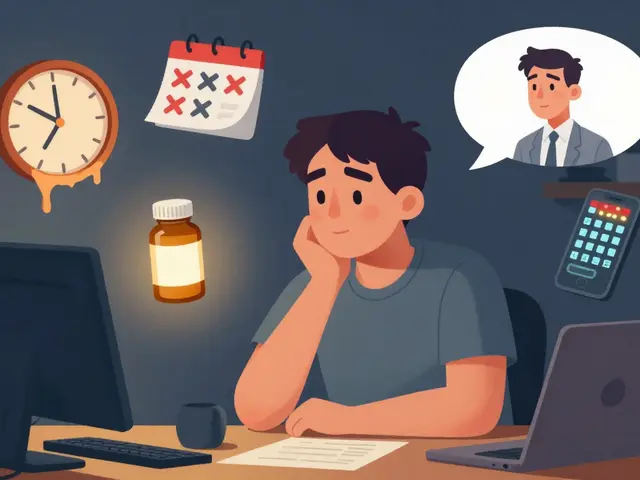Digestion: Practical Tips to Fix Bloating, Heartburn, and Slow Digestion
Feeling bloated after a meal isn't always your fault. Food choices, meal pace, stress, and even small food intolerances often play a bigger role than you think. This page gives clear, usable steps you can try today to ease discomfort and make digestion smoother.
First, know the common signs: bloating, gas, heartburn, nausea, slow stools, and abdominal pain. Those symptoms can come from overeating, eating fast, fatty or spicy foods, low fiber, dehydration, or medications. Tracking when symptoms appear helps pinpoint triggers much faster than guessing.
Quick fixes you can use now: slow down and chew each bite well, sip water between bites (not a full glass during every mouthful), go for a 10–15 minute walk after meals, and try a warm herbal tea like peppermint or ginger. These moves reduce gas buildup, speed gastric emptying, and calm the stomach without pills.
Food and habit changes that actually help
Start with fiber: add vegetables, fruits, oats, or psyllium gradually to avoid more gas. Fiber feeds good bacteria and improves stool regularity. Cut back on obvious offenders like beans, excess whey protein, and high-FODMAP foods if you notice a pattern. Keep a simple food log for two weeks to see what correlates with symptoms.
Look at meal timing. Eating big late dinners often causes heartburn and poor sleep. Try finishing meals two to three hours before bed. Smaller, more frequent meals can help people with slow digestion, while larger meals may trigger reflux for others—test which works for you.
When to use supplements or medicines
Probiotics can help with bloating and irregular stools for some people; choose a product with documented strains and start for 4–8 weeks to judge effect. Digestive enzymes may help if fat-heavy meals cause bloating. For heartburn, over-the-counter antacids or H2 blockers can work short term; avoid long-term proton pump inhibitor use without a doctor’s ok.
Be careful mixing remedies with prescriptions. Antibiotics, some painkillers, and certain blood pressure drugs can upset digestion. If a new medication lines up with new symptoms, talk to your provider about alternatives.
If you have sudden severe abdominal pain, unexplained weight loss, bloody stools, persistent vomiting, or new symptoms that don’t improve in a week or two, see a doctor. Tests might include blood work, stool checks, breath tests for small-intestine bacterial overgrowth, or an endoscopy to look at the GI tract directly.
Small, consistent changes beat one-off fixes. Try two tweaks at a time—one diet change and one habit change—then watch symptoms for two weeks. If you want, browse our related articles on digestion-friendly diets, nausea meds like domperidone, and natural oils that support gut health for more detail.
Remember, simple tests and a quick chat with your primary care doctor often clear up lingering issues. If symptoms affect your daily life, don’t wait. Keep notes, bring a brief symptom diary to appointments, and ask for targeted tests. Being prepared speeds up diagnosis and gets you back to normal faster.





